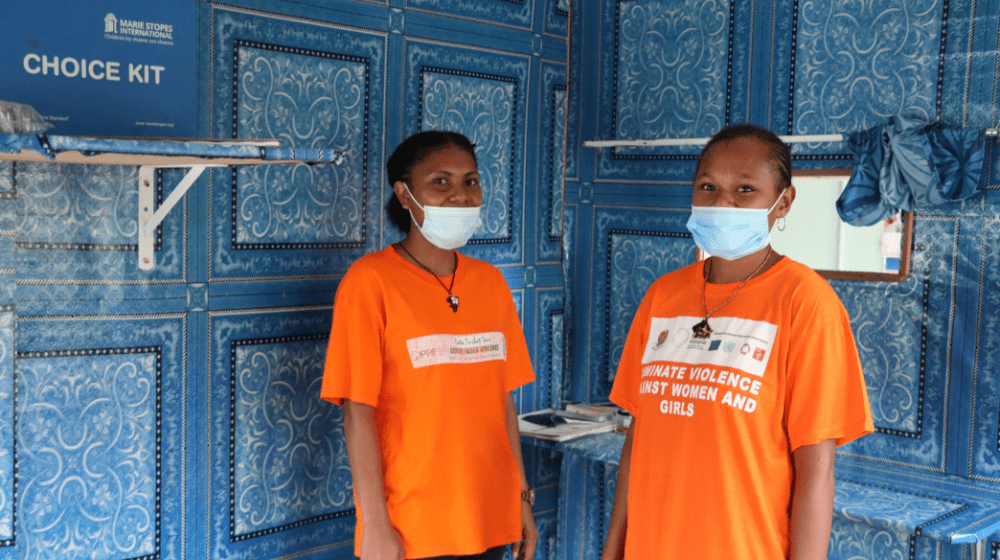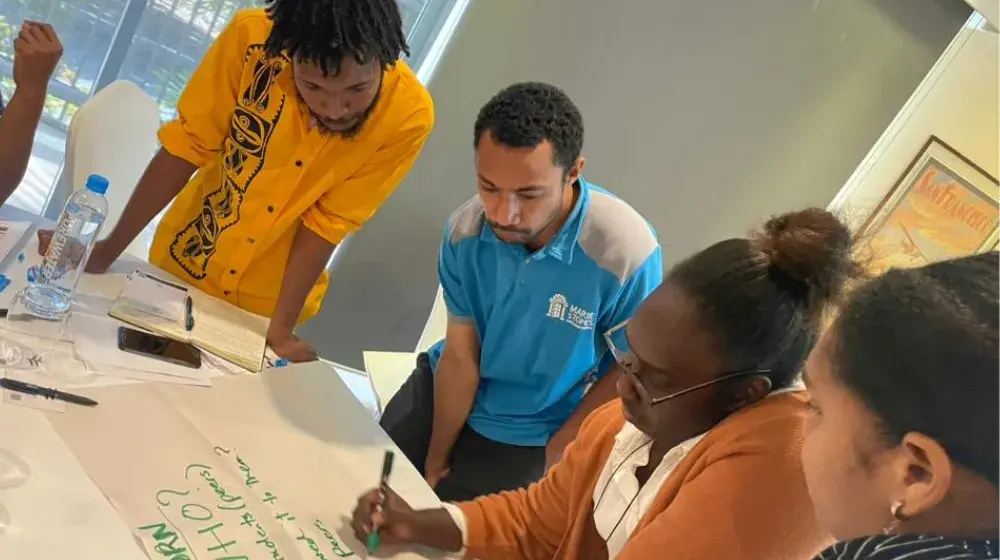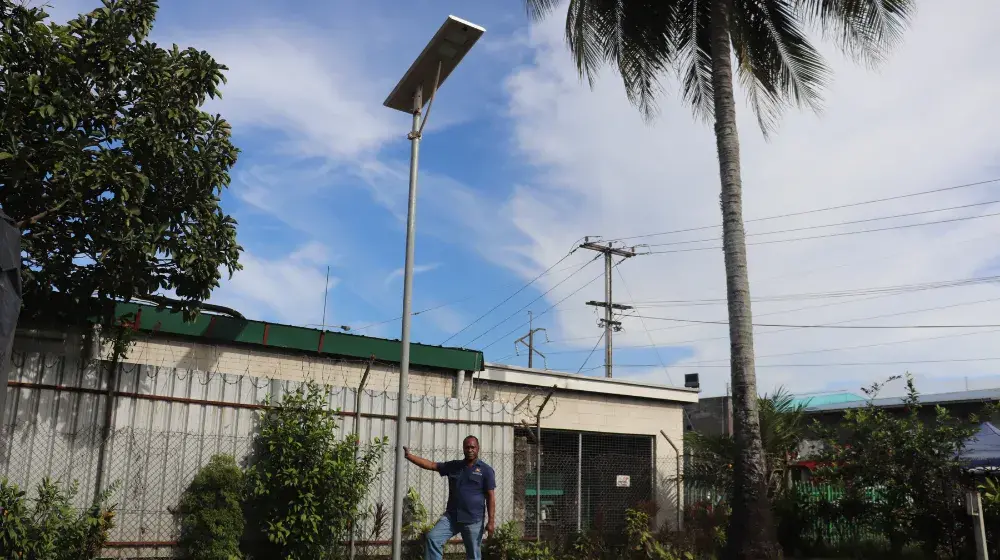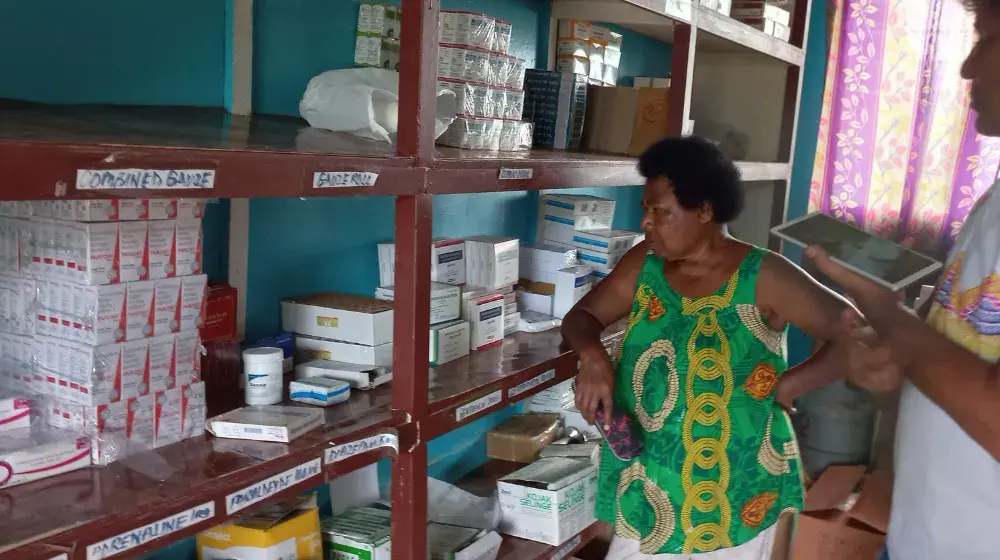For the 58% of Papua New Guinean women who have reported experiencing physical or sexual violence from an intimate partner, seeking help can be difficult. Many women do not know what assistance is available to them, let alone how to access it.
19-year-old Sandra from Manus Island is one of those 58%. She faced violence at the hands of her partner, a policeman.
“For 8 months I have been in this partnership and domestic violence has become a norm, a reality for me,” shared Sandra.
“He splits my head open using timber and any objects around him. He even cuts me using knives and, in the worst-case scenario, he has threatened to shoot me with his gun. It is worse because this is a policeman doing this to me. I do not know what to do and where to go.”
After reporting her case to the local police station, officers of the Family and Sexual Violence Unit (FSVU) referred Sandra to the East New Britain Family Health Association (FHA).
“I did not know that the FHA exists in the province,” said Sandra. “If I had known earlier, I would have sought help. It is an eye-opener for me, knowing that I can get a preventive order, and that the courts can help me by having the perpetrator arrested.”
Referral Pathways Connecting Health and Justice
East New Britain Provincial Coordinator of FHA, Ms. Christine Atu, shared she has seen many cases similar to Sandra’s where the FSVU officers have been able to hold perpetrators to account and ensure survivors can return safely to their families. The FHA, which provides health care services and counselling for survivors, is an important partner to the FSVU as Christine and the team can provide medical reports detailing the injuries sustained due to acute or prolonged abuse.
“I have written reports for women who are victims of severe sexual assault that has left them sick and traumatized for months, and even written reports for women who have had their heads slashed by machete,” said Christine. “It is a sickening sight. But I find some sort of peace knowing that these perpetrators are behind bars and that these women do not have to go through the experience again.”
“No one is above the law,” said Christine. “And for young Sandra’s case, where the perpetrator is a policeman, justice will be served as long as the matter has been reported.”
Christine, a nurse with over 30 years of experience, shared how reporting simple has helped prosecutors and reduced delays and pushbacks from the courts.
“When describing the bodily harm done to the victims, my team and I always use the simplest terms to explain what we have seen,” explains Christine. “No hard technical terms, just simple words that the Magistrate or Judge can easily visualize and that the victims can understand when asked during the court process.”
The FHA and FSVU are two partners in a referral pathway that includes hospitals and other frontline service providers. In Kokopo, when a survivor makes a complaint and files a report at the police station they are provided with a request form to take to the FHA for a consultation and medical report. This report is then able to be used as evidence if the case proceeds to trial.
Similarly, if a survivor presents to the FHA clinic with indications of intimate-partner violence, the clinician will discuss with them various pathways of support, including filing a report with police or being referred to a safe house.
Maintaining the Momentum
The referral pathways between the FHA and FSVU in East New Britain have been successful in providing support for women experiencing violence. But there is work to be done to ensure these systems are maintained.
The FHA is located in the centre of Kokopo. Though the team does conduct outreach activities, regular access to the FHA clinic – and to free medical reports for survivors who choose to pursue legal action – is far easier for those resident in Kokopo or Rabaul than for those in remote areas of the province. Even for those within Kokopo, the logistics and cost of travelling to the clinic may be a barrier.
Strengthening provincial partnerships is an important step towards reducing these barriers.
“The ENB FHA is yet to sign a Memorandum of Understanding with our Provincial Government and Provincial Health Authority which would enable us to get access to adequate finance, which in turn can enable us to reach out to our communities, and spread the word that there is help available,” shared Christine.
“We thank UNFPA for the capacity building that has been provided to us to be better equipped at our job. Now we just need the resources to get out there and help our communities because we know we can do more.”
Christine urged all survivors of intimate partner violence to spread the word about the services available at the FHA so that they may encourage others to come and receive support. As for Sandra, she has successfully obtained a Preventive Order and is now in a safe house, awaiting the court dates and her safe repatriation back to Manus.
UNFPA support to the Family Health Association is provided through the Spotlight Initiative to end violence against women and girls, funded by the European Union.





